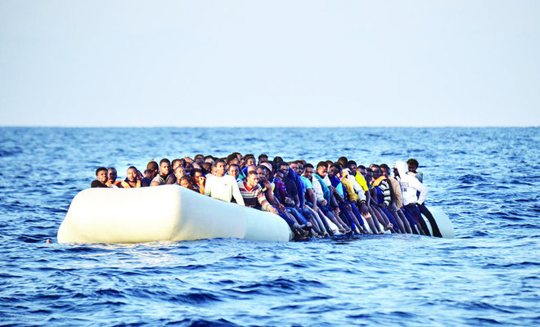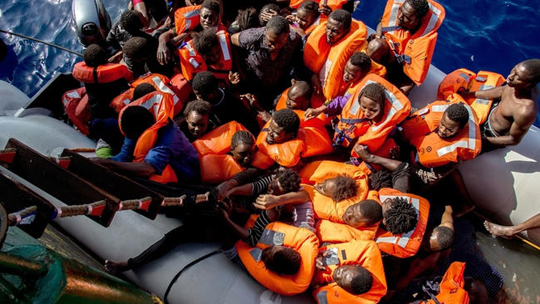Geneva, Nov 4: At least 239 migrants, believed to be from West Africa, have died in two shipwrecks off Libya, a spokesman for the United Nations migration agency said on Thursday.

One group of migrants, including about 20 women and six children, set off in a rubber dinghy from Libya around 3 a.m. on Wednesday, but their boat collapsed after a few hours, said Flavio di Giacomo, a spokesman for the UN’s International Organization for Migration, who cited accounts by survivors.
By the time rescuers arrived, most had drowned. Twelve bodies were recovered, including three babies. About 27 survived.
Another two women reported surviving a separate disaster that happened at about the same time. Their rubber dinghy was carrying about 130 people.
The International Organization for Migration said the latest deaths meant 4,220 lives had been lost in the Mediterranean so far this year, compared with 3,777 in the whole of 2015.
October saw a surge in migrant arrivals in Italy, with 27,388 arriving, more than the two previous Octobers combined, and bringing this year’s total arrivals to over 158,000, di Giacomo said.
The smugglers who arrange the journeys have told migrants that European training of Libyan coast guards means the rescue missions will soon be handed over to Libya and any rescued migrants will be taken ashore in Libya rather than Italy, di Giacomo said.
That was possibly causing the rush to board boats now, he said, although the information, gleaned from rescued migrants, was not confirmed. Over 4,000 migrants have died or are missing feared drowned after attempting the perilous Mediterranean crossing this year.
The rescue situation is often chaotic, with people confused, sick or exhausted after periods in crisis-hit Libya unable to specify how many people were on board their dinghies at the outset or what vessel pulled them from the water.
“Before dawn, we saw a migrant dinghy, lit up by the Responder’s search light,” photographer Andreas Solaro said, adding that 31 people, 28 men and three women, one of them elderly, were rescued.
In the second rescue, 147 people from Eritrea, Ghana, Sudan, Mali and Sierra Leone were pulled to safety, including 20 women, though only after some had fallen into the sea.
“The (Responder) crew was shouting at them to sit down and stay calm while the lifejackets were handed out but they were getting agitated, and around 10 of them fell overboard, some without lifejackets on,” Solaro said.
October marked a record monthly high in the number of migrants arriving in Italy in recent years — some 27,000 people — and the departures have showed no sign of slowing, despite worsening weather in the Mediterranean.
Amnesty International warned Thursday the pressure placed on Italy by Europe to cope alone with the worst migration crisis since World War II had led to “unlawful expulsions and ill-treatment which in some cases may amount to torture.”







Comments
Add new comment